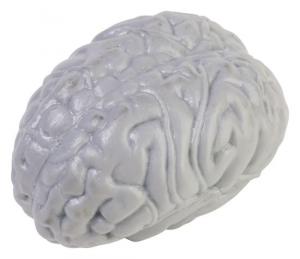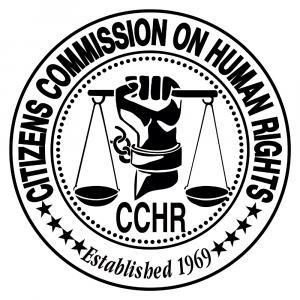
Justice for Millions of Americans Prescribed Antidepressants for a Chemical Imbalance of the Brain that Doesn’t Exist?

The American Psychiatric Association, drug companies, and medical advisors to nonprofit advocacy organizations knew the chemical imbalance theory had no scientific basis, but led the public to believe it was a scientific fact, which may be fraud.
A new report details the history of the fraudulent promotion of the unproven theory and the possible grounds for a class-action lawsuit.
WASHINGTON, DC, US, August 18, 2022 /EINPresswire.com/ -- Recent comprehensive research has concluded there is no scientific basis for the theory that a low level of brain chemicals like serotonin and norepinephrine causes depression. So does the promotion of that theory constitute fraud?
Since the late 1980s, the discredited theory has provided the rationale for prescribing selective serotonin reuptake inhibitor (SSRI) and serotonin-norepinephrine reuptake inhibitor (SNRI) antidepressants. Some 45 million Americans currently take antidepressants. If the theory is a myth, did those who promoted it commit fraud?
Journalist Robert Whitaker, founder of the Mad in America website, takes up the question in his recent blog, “Psychiatry, Fraud, and the Case for a Class-Action Lawsuit.” Recounting the history of the chemical imbalance theory of depression, Whitaker says that as early as 1974, researchers concluded that low levels of brain chemicals did not cause depression, and that the third edition of the American Psychiatric Association’s (APA) Textbook of Psychiatry, published in 1999, abandoned the chemical imbalance theory, pointing out in one section the faulty logic that led to the inception of the theory.
From 1999 on, Whitaker argues, “the APA, the pharmaceutical companies, and the academic psychiatrists that populated the scientific advisory councils [of nonprofit advocacy organizations] had an obligation to inform the public that the low-serotonin theory had not panned out.”
Instead, the theory was widely promoted, with the result that the public came to believe it was scientific fact. Surveys have found that 85% to 90% of the public believe that a chemical imbalance causes depression and antidepressants fix it.
In the most recent study debunking the theory, researchers led by Joanna Moncrieff, a psychiatrist and professor at University College London, conducted a comprehensive review, which for the first time integrated all relevant research, to evaluate whether scientific evidence supported the serotonin theory of depression.
Their conclusion, published in Molecular Psychiatry, states: “Our comprehensive review of the major strands of research on serotonin shows there is no convincing evidence that depression is associated with, or caused by, lower serotonin concentrations or activity.”
“The serotonin theory of depression has been one of the most influential and extensively researched biological theories of the origins of depression,” the researchers wrote. “Our study shows that this view is not supported by scientific evidence. It also calls into question the basis for the use of antidepressants.”
The researchers expressed concern that the general public’s acceptance of the chemical imbalance theory of depression has had the adverse effect of causing depressed individuals to believe they have less control over their moods, leading them “to a pessimistic outlook on the outcome of depression and negative expectancies about the possibility of self-regulation of mood.”
In an earlier study led by Benjamin Ang in the psychiatry division of University College London, researchers examined the coverage of the serotonin theory of depression in a sample of highly cited and influential academic literature starting in 1990, when the serotonin theory was first popularized. They concluded that “during the period 1990-2010 there was considerable coverage of and support for the serotonin hypothesis of depression in the psychiatric and psychopharmacological literature.”
Whitaker makes the case that these facts constitute “the basis for a class action lawsuit: the psychiatric community long ago knew that the low-serotonin story of depression hadn’t panned out, yet the American Psychiatric Association, pharmaceutical companies, and scientific advisory councils told the public otherwise, and this created a societal belief in that false story.”
In a recent interview, psychiatrist Peter Breggin, M.D., who has been a medical expert in SSRI-related lawsuits, discusses not only the history of the fraud of the chemical imbalance theory and the clinical trials that have been “rigged” to produce outcomes favorable to the drug companies, but also the harm done to the individuals by taking antidepressants as a result of the chemical imbalance myth.
He explains SSRI antidepressants are “amphetamine-like and cocaine-like, and they produce insomnia, agitation, anxiety, psychosis, and crashing into depression, and violence associated with the amphetamine-like overstimulation effects.”
The adverse effects take a further toll on the individual over time. “In the long run, you lose your engagement with life, you lose your connectedness, you lose your depth of feeling,” he says. “You’ve been ruined.”
Those who want to stop taking antidepressants for any reason should do so only under a doctor’s supervision because of the risk of serious withdrawal symptoms, though doctors still have no clear guidance for how to taper patients off the drugs. A study of the incidence, severity and duration of antidepressant withdrawal effects concluded more than 56% of people who attempt to come off antidepressants experience withdrawal symptoms, with nearly half (46%) of them rating those symptoms as “severe.”
The Citizens Commission on Human Rights (CCHR) continues to raise public awareness on the lack of scientific proof of the chemical imbalance theory and the known harms of antidepressants and other psychiatric drugs, so that consumers and their physicians can make fully informed decisions about starting and stopping the drugs.
CCHR also recommends a complete physical examination with lab tests, nutritional and allergy screenings, and a review of all current medication to identify any physical causes of depression or other unwanted mental and emotional symptoms. CCHR supports evidence-based non-drug approaches to mental health.
WARNING: Anyone wishing to discontinue or change the dose of an antidepressant or other behavioral drug is cautioned to do so only under the supervision of a physician because of potentially dangerous withdrawal symptoms.
CCHR was co-founded in 1969 by members of the Church of Scientology and the late psychiatrist and humanitarian Thomas Szasz, M.D., recognized by many academics as modern psychiatry’s most authoritative critic, to eradicate abuses and restore human rights and dignity to the field of mental health. CCHR has been instrumental in obtaining 228 laws against psychiatric abuses and violations of human rights worldwide.
The CCHR National Affairs Office in Washington, DC, has advocated for mental health rights and protections at the state and federal level. The CCHR traveling exhibit, which has toured 441 major cities worldwide and educated over 800,000 people on the history to the present day of abusive and racist psychiatric practices, has been displayed at the Congressional Black Caucus Foundation Annual Legislative Conference in Washington, DC, and at other locations.
[1] https://www.madinamerica.com/2022/08/psychiatry-fraud-and-the-case-for-a-class-action-lawsuit/
[2] https://www.nature.com/articles/s41380-022-01661-0.pdf
[3] https://www.sciencedirect.com/science/article/pii/S266656032200038X
[4] https://www.youtube.com/watch?v=dlMTTQE6fsw
[5] https://www.sciencedirect.com/science/article/pii/S0306460318308347?via%25Dihub
[6] http://www.cchrint.org/psychdrugdangers/
Anne Goedeke
Citizens Commission on Human Rights, National Affairs Office
+1 202-349-9267
email us here
Visit us on social media:
Facebook
CCHR: What’s Wrong with Psychiatry? A Psychiatrist Explains
EIN Presswire does not exercise editorial control over third-party content provided, uploaded, published, or distributed by users of EIN Presswire. We are a distributor, not a publisher, of 3rd party content. Such content may contain the views, opinions, statements, offers, and other material of the respective users, suppliers, participants, or authors.




